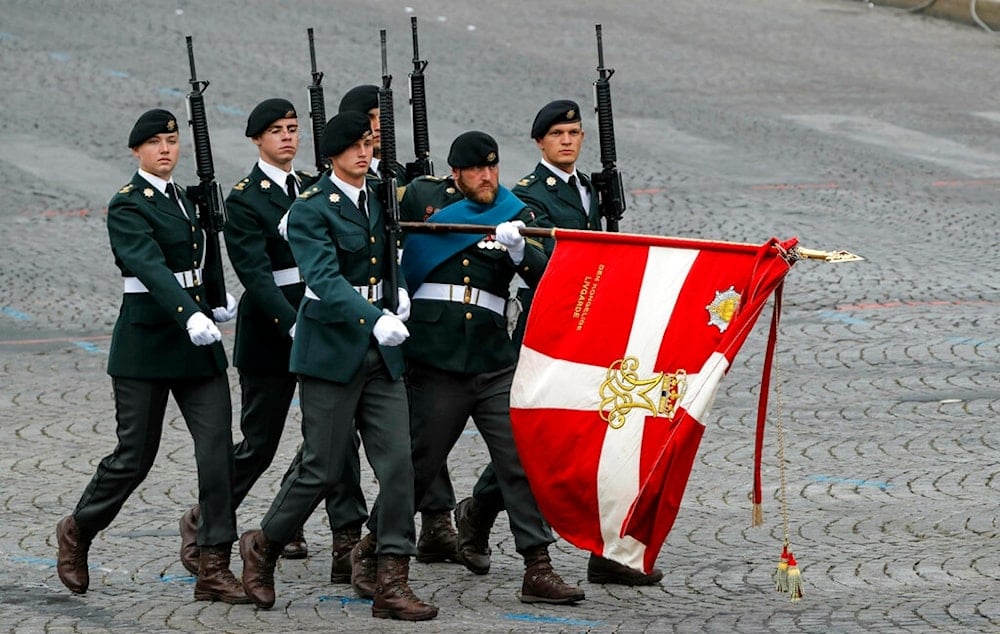Denmark revives conscription in bid to build wartime reserve
Denmark is revamping its military readiness by forming a mobilization reserve of former conscripts and extending universal mandatory service, as part of a broader defense overhaul amid rising regional tensions.
-

Danish soldiers march on the Champs-Elysees avenue during the Bastille Day parade in Paris, France, Sunday July 14, 2019 (AP Photo/Michel Euler)
Denmark is intensifying its military preparedness with a plan to establish a new mobilization reserve force composed of thousands of former conscripts. The move, announced by Defense Minister Troels Lund Poulsen on Thursday, comes as Europe experiences a coordinated push among NATO and EU member states to rearm in response to what they describe as heightened security threats, primarily from Russia.
"We are developing a detailed plan to create a new mobilization force. A force consisting of many thousands of former conscripts who will be ready to join the armed forces again in case of a crisis or war," Poulsen said in a social media video. He stressed that Denmark must act quickly to rebuild and modernize its military posture given the rapidly shifting geopolitical environment and continued conflict in Europe.
The mobilization force is part of a broader defense overhaul, which includes extending mandatory military service from four to eleven months starting in 2026 and introducing universal conscription for both men and women. This would make Denmark only the third European country, after Norway and Sweden, to implement such a policy. Officials say the change aims not only to enhance readiness but also to promote gender parity in national defense.
Prime Minister Mette Frederiksen said that Denmark's rearmament strategy is designed to deter aggression rather than escalate conflict. However, she also acknowledged earlier this year that while defense spending is set to increase dramatically, funding remains an open challenge.
Continental Rearmament
Despite budgetary uncertainty, Denmark is moving forward with a significant military surge, pledging to allocate 3% of its GDP to defense over the next two years, the highest level in over five decades. The government is also weighing further increases to meet a proposed NATO benchmark of 5% of GDP for defense and security expenditures.
This comes amid a wider militarization effort across Europe. NATO recently called on European allies to increase their ground-based air defense forces fivefold, describing the current gap as a critical vulnerability. The proposal is expected to dominate the agenda of the NATO defense ministers' meeting in Brussels, as the alliance seeks to expand its deterrence capabilities against what it terms "long-term regional threats."
Read more: NATO pushes for fivefold increase in European air defense forces
At the same time, 11 EU defense ministers, including Denmark's, have urged the European Commission to revise legal and regulatory frameworks they say are obstructing military readiness. Their joint letter points to labor, environmental, and procurement laws that hinder troop movements and training exercises, particularly near Russia's borders.
The EU is also injecting €910 million into joint weapons procurement and drone defense infrastructure, signaling a coordinated shift toward rapid mobilization and operational flexibility.

 3 Min Read
3 Min Read









